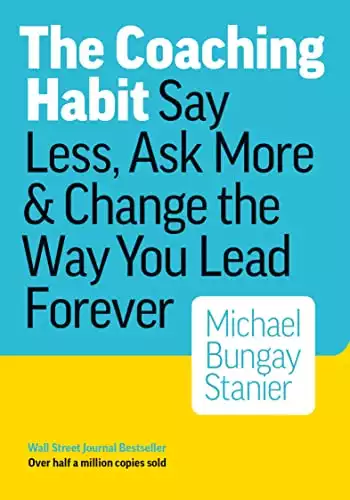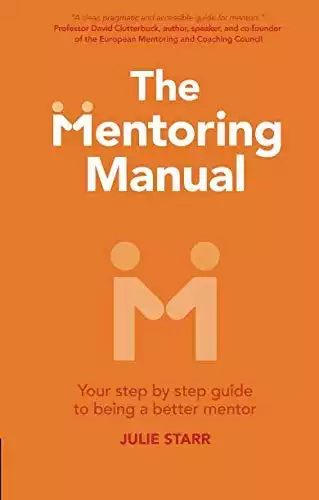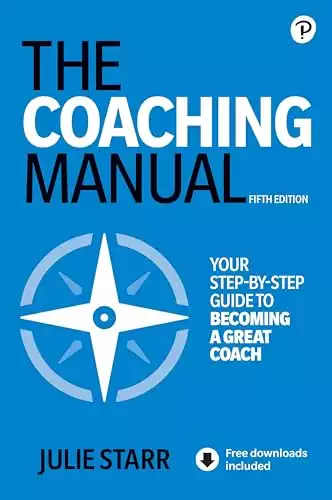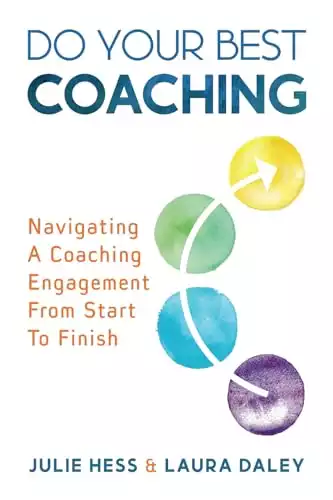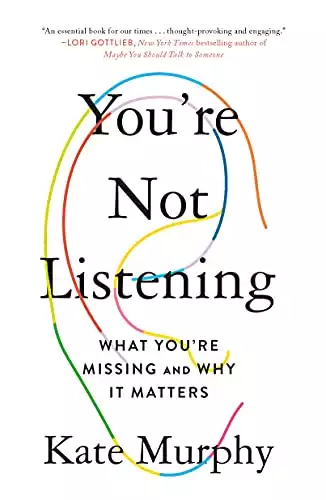Questioning and listening: Your mentoring power skills
This blog is reader-supported. When you purchase something through an affiliate link on this site, I may earn some coffee money. Thanks! Learn more.
Mentoring, at its core, is talking to other people and sharing your experience. A successful mentoring relationship relies on the mentor (that’s you) being able to ask effective questions and listen to the answers.
In this article I’ll show you how I use effective questioning and active listening, and how you can use them at work to improve your mentoring practice.

Why listen to me?
I’ve been mentoring colleagues inside and out of work for over 15 years. As someone who has done the job, you can bet I’ve tried all the tips and more! You can book a call with me for more support.
Technique 1: Effective questioning
Effective questioning is a learner engagement technique where the question supports the learning goals and encourages the learner to respond in a particular way.
In other words, if you ask better questions, the mentee (or student) is challenged to respond in a particular way and that helps them with their own learning in the moment.
It’s great because it helps you understand the problem more effectively so you can offer constructive feedback, if that’s appropriate.
There are 3 ways that effective questioning can be characterised (Uni of Tennessee):
- Structure: open or closed questions where there is the potential for a range of responses or yes/no answers.
- Cognitive effort: how much effort the student needs to put in to process the question and respond appropriately.
- Directionality: exploratory questions that prompt a wide range of thinking/responses or convergent questions that encourage a topical discussion to get narrower, used depending on the goals of the conversation.

In The Coaching Habit (Bungay Stanier, 2016) the author advises that we avoid asking ‘why’ questions when working with colleagues/direct reports as it can come off as judgemental (“what were you thinking??!”).
Instead, reframe questions to ask them as a ‘what’ question (“what was your goal with that?”).
Cornell University says effective questions are those that are understood by the listener and provide a challenge but aren’t too difficult to answer. If the question is virtually impossible, your mentee isn’t going to get anything out of the exchange, and neither are you.
How I use effective questioning
The point of questioning is to encourage reflection, and I do ask a lot of questions as a mentor. They help me understand the situation so I can properly advise, and help the mentee reflect on what they did/are planning to do in any given situation so they can take the right course of action next.
When I teach group classes, I am trying to avoid asking if there are any questions at the end, as often that puts students on the spot, or they don’t have time to type or frame their question in the time allocated.
I’ll try to collect questions in advance or even make up a few commonly asked questions so I have something to talk about to fill the silence while people come up with questions of their own. I signpost that question time is coming up from the beginning, so people can prepare their questions.
Being able to ask the right questions at the right time helps me, especially if I don’t know a lot about their project, work or department.
While there are some universal truths in office life, a lot of being able to guide someone is situation dependent. Being able to understand the situation and any associated office politics or opportunities for conflict can be helpful in working out a strategy to address a challenge in conjunction with the mentee.
Read next: What you need to know about project management communication
Technique 2: Active listening
Active listening is listening in a way that helps you understand the mentee’s perspectives. Knowing how to listen actively is a skill that you can develop for your professional relationships, and you’ll find yourself relying on this in your mentoring process.
We all know how to listen (even if we don’t do it all the time). But what does active listening look like?
NHS England describes 6 ways to demonstrate that you are actively listening:
1. Define terms
Make sure everyone has the same understanding of jargon. An effective mentor will check in to make sure that the mentee understands what they are saying, and ask questions if they hear a term that they don’t know.
2. Repeat and paraphrase
I use this a lot to make sure I have heard and understood correctly, often using the words that the person used but in a different way, or similar words so it’s not literally repeating what they have just said as that sounds annoying.
Communication skills are so important in so many aspects of workplace life, and building this simple step into your everyday repertoire will help in lots of situations.
3. Don’t interrupt
Make sure people have the time to complete their sentences and their thoughts.
If you have to interrupt because you’ve run out of time in the session, make a note of what topic you were on so you can bring it up again next time.
4. Listen between the lines
This is about looking out for and listening for feelings, assumptions, values, fears etc. I haven’t really reflected before on what this looks like for my mentoring approach, but I do think I’ve become quite good at it over the years.
Also, having children has helped as they are unable to articulate their feelings and I’ve had to pick them up from body language, facial expressions or their choice or words and tone.
5. Don’t rush to fill silences
I talk quickly and I am getting better at leaving gaps. This is something I could work on more. Having a pause allows us both to slow down and reflect, and also to deepen our understanding of the topic at hand.
6. Feedback impressions
The NHS website suggests checking observations with assumptions and gives the example, “If I were in your shoes, I might be thinking…” and then letting them say whether your assumption is correct or not.
This gives you both an out if you’ve misinterpreted the content.
Active listening as a mentor
During my day-to-day role, and while working in my mentoring capacity, I try to demonstrate active listening.
Sometimes, at the end of a session, mentees say that they feel heard. That’s really important to me as it means I have managed to demonstrate empathy and show them that they are not only not alone in their work challenges, but also that their concerns are valid – and that has come across during the conversation.
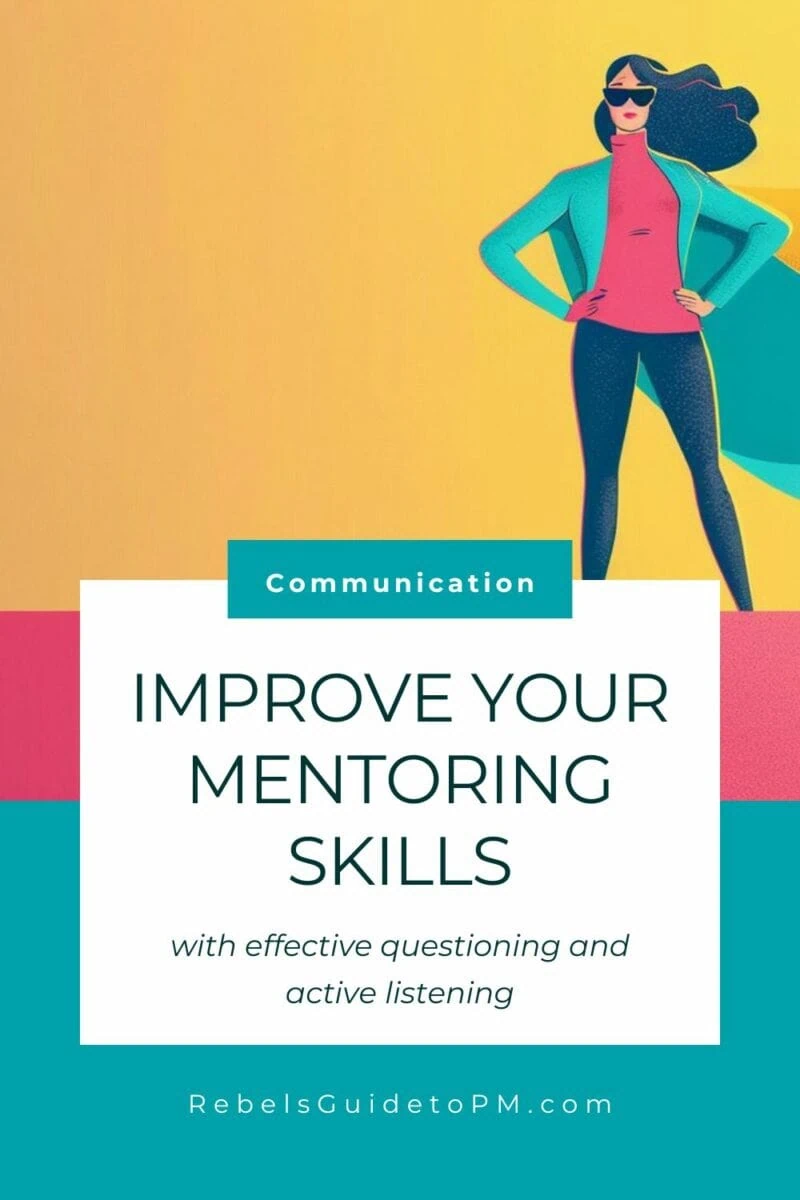
How I demonstrate active listening
I demonstrate active listening by watching my body language, for example nodding and smiling at the right times, and looking directly at the camera to make eye contact instead of at the screen, as that makes your eyes look like they aren’t directly looking at the person.
It’s particularly hard to demonstrate active listening on camera because I often I do have something else on my screen alongside their face, like the notes I am typing as I go through the call, or their CV or some other relevant document we are looking at together.
I think I’ve got a lot better at almost exaggerating some of the queues that you’d expect to see in person, not so it looks fake, but so that the behaviour is obvious and a clear signal to the other person.
I find it harder to demonstrate active listening when the other person does not have their camera on; fortunately this does not happen that often. If you mentor colleagues who do not have their cameras on, encourage them to change that! Or meet in person.
Recommended Mentoring Books
Taking it further
Questioning and listening are two sides of the same coin and you’ll use them in mentoring sessions and in your own work. Show up with realistic goals and a positive attitude and you’ll find these two skills will help you a lot.
Honing these skills, alongside your emotional intelligence radar, will go a long way towards making you the effective mentor you want to be… even on days where it feels like you haven’t said anything meaningful to your mentees!

